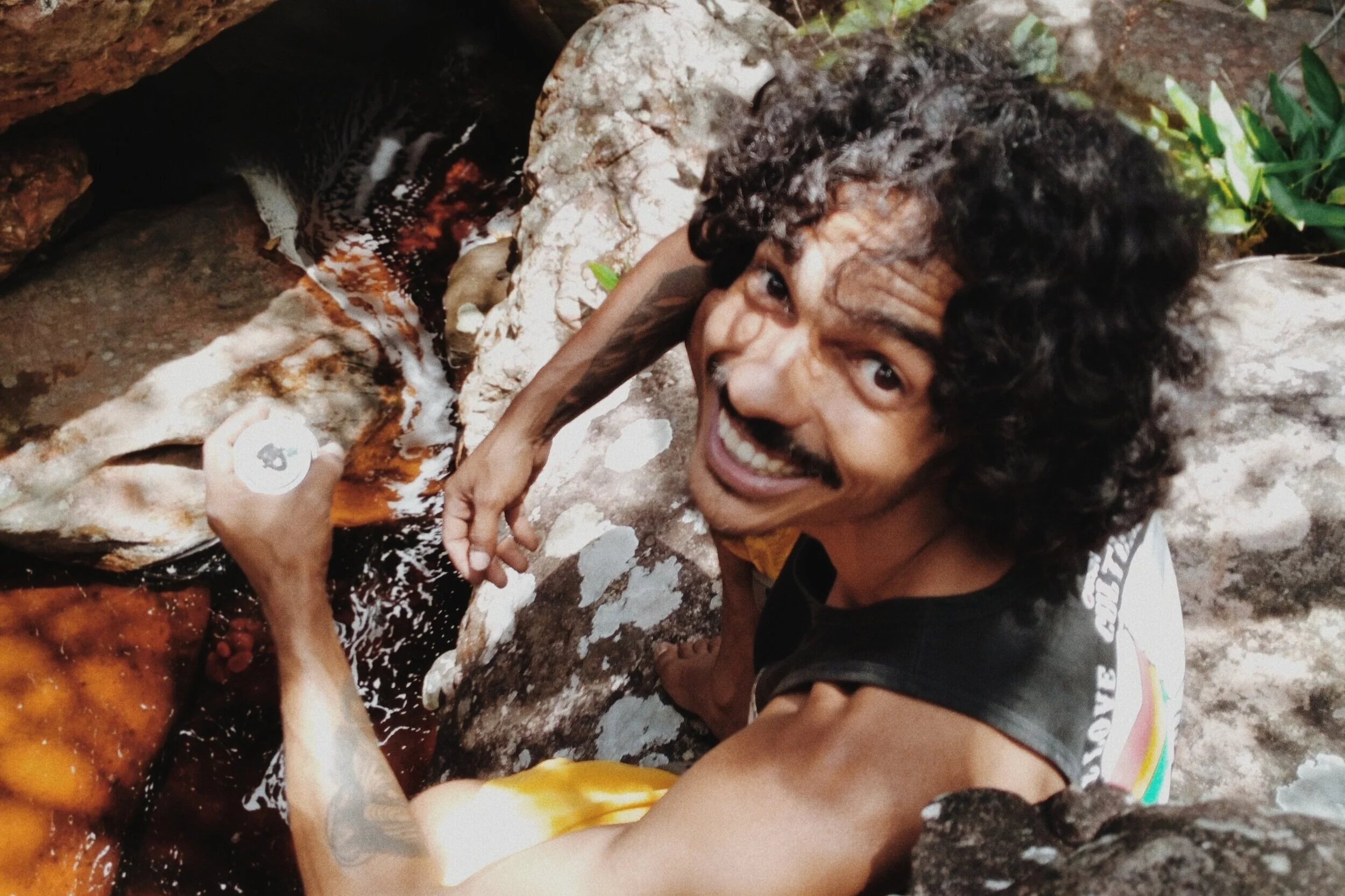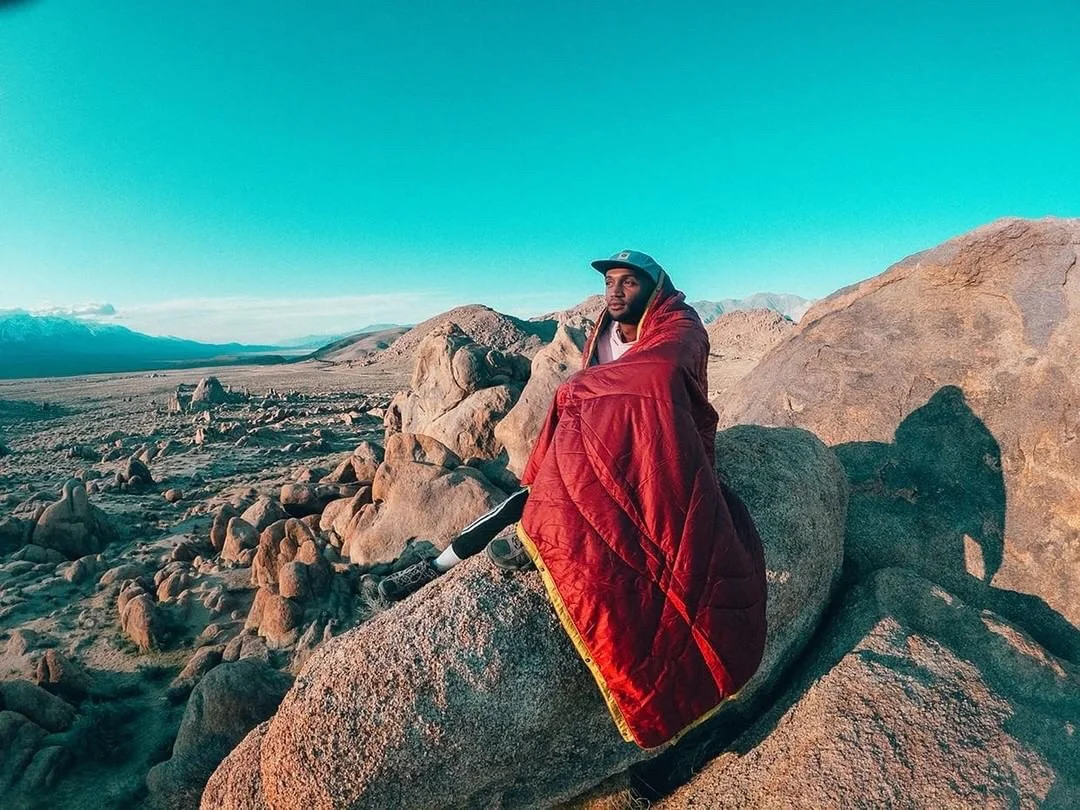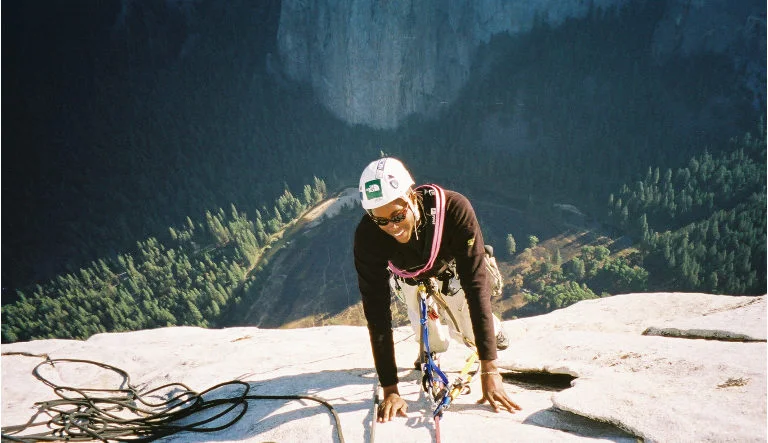4 Tips for Confronting Internalized Racism in the Outdoors
Photo by jacoblund/iStock / Getty Images
In the media, we often hear about how Black, Indigenous and People of Color (BIPOC) have lower rates of participation in the outdoors. The focus is usually on how we are less likely to visit national parks. These conversations can feel very one-sided—including on social media where you may feel pressure to criticize your own community for not being more active in the outdoors, for not caring about the environment or for rejecting outdoor recreation as “stuff White people do.”
So why the judgment? Maybe it’s borne of ignorance—we don’t grow up learning about systemic racism or racial trauma but we do grow up hearing how Black and Indigenous people are lazy, uneducated, unhealthy, obese or comically scared of Nature. And because we’ve heard this narrative over and over in school, in the news, in textbooks, online and in films, it must be true. Right?
Wrong. It’s time to address internalized racism within ourselves and within our communities. Whether this is you or someone you know, here are four tips for confronting internalized racist beliefs in the outdoors.
Getty Images
1) Stop demanding that your BIPOC relatives put themselves at risk just so they can experience Nature
Online, I often see well-meaning BIPOC call out their family for stereotyping outdoor activities as “White” or for not being more eager to participate. Here’s the thing, your family members aren’t wrong. Outdoor recreation in the United States is overwhelmingly White. No, it doesn’t feel good when family members tease you for “acting White” because you enjoy nature walks. I’m not justifying that. Nor am I saying you should abandon your plans to hike the Appalachian Trail because you’re worried you might be the only Desi hiker. Just don’t gaslight your family, because they’re actually onto something.
Outdoor recreation and conservation in the U.S. have a long history of racism. As many of us have personally experienced, the mostly White mountain towns where we love to recreate are not necessarily safe for BIPOC. The discrimination we face may be compounded if we also identify as queer, womxn, disabled, fat, etc. So please don’t gaslight your family members because they think hiking is something that only White people do. They’re not entirely wrong. And don’t be surprised if your immigrant parents don’t understand why they worked so hard for decades for their child to choose to sleep on the ground. You might not win this argument. But you don’t have to.
While you have the right to live your life, please acknowledge that some of their worries and beliefs are rooted in truth. Instead of insisting that the outdoors is perfectly safe, you can let your family know what countermeasures you’re taking, from bear spray to pepper spray. Want to put nervous parents at ease? Let them know that you’ll be climbing with a large group of friends who will have your back if you are pulled over by police for driving while Black or heckled by strangers for wearing hijab.
Don’t stop living your life. Just recognize that some of your family’s fears are valid. Don’t gaslight them.
Photo by Isaac Wendland on Unsplash
2) Stop conflating the Outdoors with racist advertising
Stop trying to force your family to enjoy Nature the way you do, just because an all-White ad agency told you via 15-sec montage what the Great Outdoors is—peakbagging, stump jumping, steep lines and deep powder, and isn’t—fat, queer, disabled, brown, or working class. For so long, the outdoors has been narrowly defined as White men pushing their limits in the “uncharted wilderness” of the backcountry. Testing the limits of what was possible was their raison d'etre; Nature was their playground; and Indigenous place names, people, culture and history were entirely erased.
“And why do you limit your definition of community to other White people who hike or climb or paddle—when you’re not even White?”
The end result is that, even if we aren’t White, we are forever chasing an ideal that someone else laid out for us. If these models are harmful, then why not create your own? Many affinity groups are doing just that: teaching ways to recreate that are more respectful of the land and of Native or Indigenous people.
The reason we rank certain types of outdoor recreation (e.g. - hiking, climbing and mountain biking) over others (e.g. - backyard BBQs, fishing or gardening) is due to marketing — not intrinsic value. If you want to get your family outdoors start with accessible, affordable and family oriented activities. Go for a walk. Take public transportation to a municipal park or waterfront. Be prepared to negotiate.
I’ve been skydiving for a decade. When I first started jumping, I fell in love with the sport. I couldn’t stop talking about how beautiful and out-of-this-world the experience was. My African American family wasn’t interested but they graciously tolerated my enthusiasm and sidestepped my attempts to get them to sign up for a tandem skydive. I was absolutely convinced that I had stumbled onto something amazing that I just had to share with them.
Ten years later, I’ve finally chilled the f*ck out. I still love free fall but I no longer proselytize. Nowadays, I spend a lot more time outdoors with my family because I finally stopped pressuring them to skydive and started organizing short hikes instead.
Meet your family where they are. They don’t have to enjoy ticking off 14ers just because you do. Congratulations, you’ve found something that you really love. Now help them find something that they can get excited about - or at least tolerate while they engage in their favorite pastime — spending time with you. And remember, there is nothing morally superior about backcountry hikes or mountaineering vs. walking to work, car camping, or the dog park.
3) Make friends with other outdoorsy BIPOC & give back to marginalized communities
Maybe you live in a mostly White mountain town. And when you can escape the office, you spend your time and money in mostly White outdoor activities. Perhaps, mostly White has always been your comfort zone. You’re the only Person of Color in your friend group and it’s always been that way. And even though you’re proud of your cultural identity, it’s hard to socialize with other BIPOC in the outdoors or to view them as leaders or subject-matter-experts when you have zero past experience with BIPOC guides, trip-leaders, climbing mentors or affinity groups. Maybe you’ve considered getting to know other outdoorsy BIPOC, but you’re not sure where to start. Or maybe you’re not sure you want to.
Perhaps your goal is to do several technical climbs in the upcoming year and the only way you think you can do that is by spending all of your free time with White mentors or with all-White climbing organizations. Maybe that cycle repeats itself for the rest of your life. At the very least, you’re self-aware.
But, if you’re not sure why you’re always the only BIPOC person in your friend group, ask yourself why.
If you’re not sure why you constantly defer to White male hikers and automatically assume other BIPOC womxn (including yourself) to be less competent, ask yourself why.
If your outdoor activity doesn’t let you show up as your authentic self, ask yourself why.
If you changed your name to make it easier for your mostly White friend group to pronounce, ask yourself why.
If you switched out your Walmart-brand tent for an ultralight because your new friends insisted —if you commonly spend more than you can afford on gear because you feel pressure to fit in, ask yourself why.
If you put White friends on a pedestal simply because they are fluent in Leave No Trace, trail etiquette, permitting and lotteries, and your family isn’t, ask yourself why.
Here’s the thing; your Nanay’s garden feeds an entire family and your tio’s carne asadas bring a community together. What about you? Let’s see, climbing a 14er looks great for Instagram and your Tinder profile. And maybe it helps you feel happier, confident, grounded. Or it allows you to blow off steam. That’s good for you. But what are you doing for your community? And why do you limit your definition of community to other White people who hike or climb or paddle—when you’re not even White?
You think you’re brave for learning how to lead climb or wingsuit? That’s great, but you haven’t actually seen bravery until you read about a mass drowning involving Black children jumping into fast moving currents—without regard for their own safety—in an effort to save cousins or younger siblings who also couldn’t swim.
But you do you. Congratulate yourself on your elective poverty because Instagram told you to live your best van life. Ignore BIPOC who live in actual poverty due to systemic racism. Judge your family and other BIPOC who aren’t into the outdoors the way you are; who aren’t truly living because they’re working two jobs to feed their family and send remittances back home instead of dirtbag climbing or BASE jumping their way across Europe.
Or find another way. Create a new narrative. Acknowledge the history of the land you recreate on. Start the process of healing from the racial trauma you’ve experienced. As you heal, open up your chosen family to other people who look like you—even if it feels uncomfortable. Love yourself. Love the six-syllable Yoruba name your parents chose for you. Love the color of your skin, the texture of your hair, the shape of your eyes, nose, lips. Hold racism accountable for why you ever doubted yourself in the first place. Invest in your community and in other marginalized BIPOC communities. Help your family experience the outdoors in a way that makes sense for them.
4) Don’t Be Intimidated by Affinity Groups
We all have friends who don’t understand the importance of being in a community with other BIPOC. Sometimes, people avoid others who share their race or ethnicity, because they associate their cultural identity with painful experiences including emotional and physical abuse.
Or maybe they are trying to distance themselves from the community they grew up in because of its outdated beliefs on gender, sexuality, religion or family. Or perhaps, they grew up feeling ashamed of their culture, and those feelings persisted long into adulthood.
Now, their chosen family consists solely of White people they met through hiking or climbing and they have zero interest in befriending other BIPOC. They go out of their way to avoid them on the trail, on the slopes and at the crag. Then there are those who simply don’t feel comfortable around other people who look like them—even if those other BIPOC had a similar upbringing. They may be curious or even feel a desire to connect, but they’re afraid of rejection. They don’t feel Black enough or Latinx or Indigenous enough, or maybe they don’t speak their heritage language.
So why are outdoor affinity groups, communities of other BIPOC - like Brown Girls Climb, Black Girls Trekkin’ or Indigenous Women Hike even necessary? Well, they offer a safe space to relate to other people with shared experiences—including the experience of “growing up White” or feeling alienated from your own racial identity”—yep, you’re not the only one. Some of those shared experiences are built around culture, upbringing, etc, but often they’re built around how the world sees us. So even if you didn’t grow up getting your ends bumped, playing double dutch with your cousins or drinking sweet tea on your grandma’s plastic wrapped sofa, if you are Black in America, you have shared experiences with other Black people.
Yep, experiencing racism is one example of a shared identity, however, it could be as simple as looking for a barber shop, searching for a climbing helmet that works well for box braids or trying to figure out how to keep your skin moisturized and scent-free on a long backcountry trip.
The energy is different when you’re not the only Black person on the trip or the only bi Latinx in the friend group. If you want to know what it’s like to stop code switching, to not have to explain yourself, to laugh at shared awkwardness, or to feel your muscles unclench and your body relax as the dreaded “where are you really from?” question never surfaces, join an outdoor affinity group.
And enjoy the freedom to make mistakes, without having those mistakes misattributed to your race or gender. Okay, we can’t actually promise you that the experience will be perfect, or free of colorism, ableism, misogyny & casteism, but there are some amazing affinity groups out there in the outdoor community. Here are a few that we highly recommend:






















White American families responded to the desegregation of public pools and urban amusement parks in the exact same way—by collecting their children and going home, for good. White flight wasn’t just a “personal choice”, it was economic warfare.